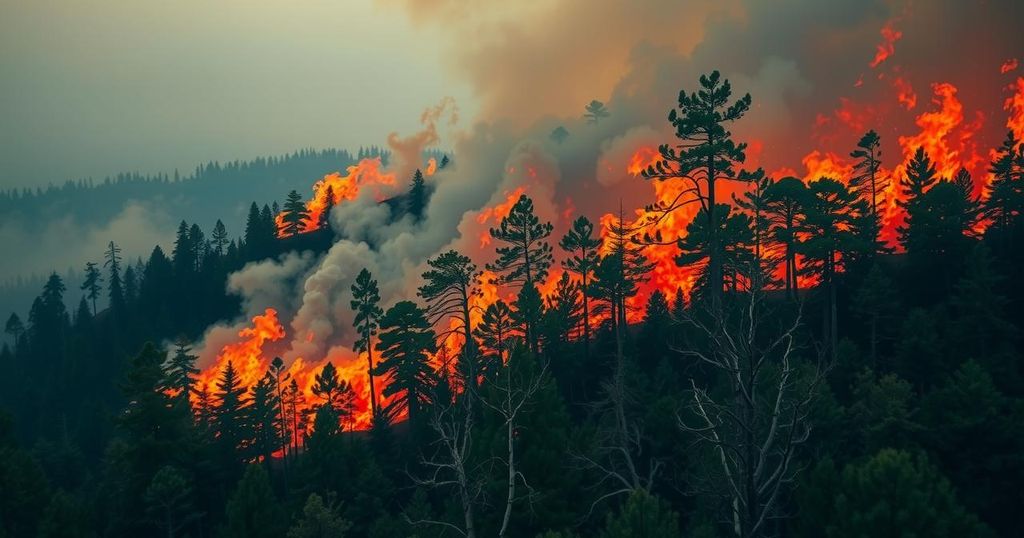Climate change is exacerbating forest fires, which has dire consequences for both the environment and public health. A study reveals a 16% increase in burned forest area from 2003 to 2019 due to climate change, with severe health impacts linked to rising air pollution. Deaths from fire-related pollution have increased dramatically over the decades, emphasizing the need for urgency in addressing these issues.
Climate change has been linked to a marked increase in the prevalence and intensity of forest fires, which poses a significant threat not only to ecosystems but also to public health due to the resultant air pollution. A recent study published in the scientific journal Nature Climate Change, involving ETH Zurich, reveals that from 2003 to 2019, the area burned by forest fires has risen by nearly 16% as a direct consequence of climate change. Regions notably affected include Australia, South America, western North America, and Siberia. Although the overall area impacted by fire has decreased by 19% within this timeframe, this reduction is attributed to agricultural expansion and land utilization changes, resulting in fewer forested areas available for burning. Nevertheless, the study underscores that where fires occur, climate change is intensifying the burn severity due to heightened heat and extended drought conditions. Cohort analysis indicates that while heat and drought are not direct fire instigators, they increase the vulnerability of forests to severe fire outbreaks. Further research led by Chae Yeon Park from the National Institute of Industrial and Science Technology in Japan emphasizes the adverse health impacts stemming from these fires. The study quantified a dramatic increase in mortality associated with fire-related air pollution globally, escalating from approximately 46,400 deaths per year in the 1960s to around 98,750 in the 2010s. It was identified that over 12,500 of these annual deaths in the 2010s were attributed directly to climate change. Regions such as South America, Australia, and Europe were notably impacted. “Our research makes it clear that climate change increasingly poses a threat to public health, as smoke is also affecting densely populated areas more frequently,” explains Park. However, the report also notes that certain areas, particularly in South Asia, have experienced a decrease in fire-associated deaths due to increased humidity induced by climate change. It is important to recognize that the study is epidemiological, which establishes statistical correlations between particulates in the air and health consequences such as cardiovascular diseases. Consequently, these results should be viewed as estimates rather than definitive clinical conclusions. The analysis provides essential insight into the interconnection of climate change, forest fire prevalence, and public health, highlighting the urgency for structural responses to mitigate these escalating threats.
The research discussed in this article stems from the pressing issue of climate change, which has been shown to affect various environmental and health factors globally. The increased temperatures and altered precipitation patterns resulting from climate change are critical contributors to the intensity and frequency of forest fires. This escalation of fires leads to higher air pollution levels, which in turn impacts human health, particularly respiratory conditions. The studies referenced not only highlight geographical disparities in forest fire occurrences but also underscore the evolving public health challenges posed by environmental changes.
In summary, climate change is substantially increasing the frequency and severity of forest fires, which poses dire implications for both environmental health and human health. The studies illustrate a concerning rise in mortality rates associated with air pollution from fires, particularly affecting densely populated areas. Immediate action and policy changes are imperative to address the dual challenges of climate change and its ramifications on public health.
Original Source: www.swissinfo.ch






